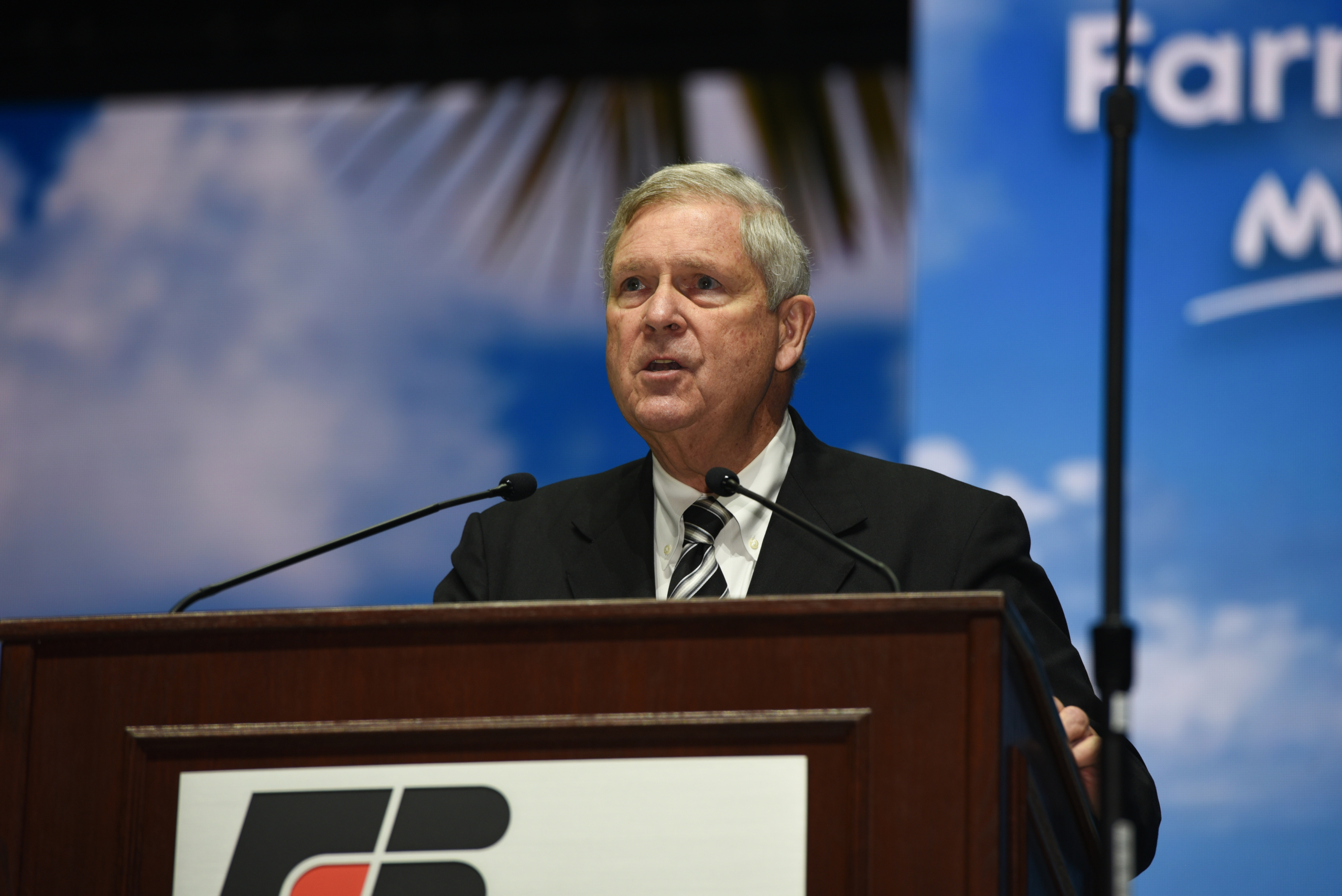By Emmy Powell
Communications Specialist
Last year was challenging for farmers and ranchers, but U.S. Secretary of Agriculture Tom Vilsack’s address at the American Farm Bureau Federation’s annual convention described intentions for a better year ahead for agriculture.
“Through it all, you still continue to produce, and you produce in a market that oftentimes finds you with limited market opportunities. It’s an incredible story of resilience,” he said. “The last two years have been the two best years in farm income, probably in the history of this country. American farmers responded to the challenge a number of years ago to continue to produce more, not just for our needs here in the U.S., but also for the needs around the world.”
Vilsack addressed more than 5,000 of the nation’s farmers and ranchers, focusing his speech on the farm economy, farm bill and disaster relief programs.
With the help of innovations and technology, agricultural productivity has become more efficient and sustainable, but there are gaps that still need to be filled.
Vilsack wants the next farm bill to help agriculture and include reforms for disaster relief and focus more on smaller operations.
“It’s important for us to continue our work on ensuring the disaster assistance that’s available to folks gets to all the farmers in need,” he said.
A second round of Emergency Relief Program funds was announced and will help farmers and ranchers who did not originally qualify. Vilsack noted that existing disaster programs aren’t as flexible as they should be for addressing varying regional needs or covering damage.
“This is an effort to try to address the issue of those who may not have large-scale production systems but who do suffer significantly during a disaster,” Vilsack said.
Those producers include “beginning farmers who are just getting started and don’t have the equity and capacity to withstand a disaster,” he said.
Alongside disaster relief, Vilsack put importance on creating opportunities for American farmers and ranchers through the farm bill.
“What do we want to do with the farm bill? What do we want to do with all these programs? We want to create a vibrant and resilient rural economy,” he said. “We want to create the opportunity for farmers not just to depend on a commodity market that can change on a whim.”
This helps not only farmers and ranchers, but all of America with nearly 20% of the workforce connected to agriculture.
“I’ve said this before to Farm Bureau groups. I’m going to say it again. The reality is everybody in the United States of America owes farmers and ranchers and producers an extraordinary debt, a debt of gratitude,” Vilsack said.

